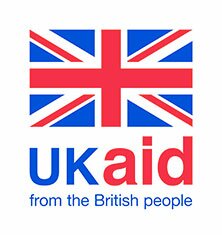COVID-19

This research report is the fourth in a series of six rounds of research, looking at the effects of COVID-19 on the poor and vulnerable urban households in Ethiopia. The report assesses the governments ongoing response to the pandemic as well as changes in household food security, livelihoods, education and access and use of health services and, explores how attitudes and behaviour towards the pandemic have changed. The results so far indicate that there have been varied impacts throughout the research sample, which to an extent are related to structural inequalities. The first three reports are available here.
Authored by Donna Harris, Biniyam Tadesse, Israel Mitiku, Mekdes Demissie, Alula Teklu, Girmay Medhin, and Frehiwot Belachew.






This report presents the methodology and results of a microsimulation based on a partial equilibrium modelling framework using nationally representative household-level data for Bangladesh. The findings include an estimate of the potential impact of COVID-19 on poverty in the country based on a model that assumes heterogeneity of impact across individuals and households depending on the type and sector of employment. Moreover, the model is used to assess the effectiveness, coverage, and adequacy of the social protection response to COVID-19. The microsimulation results complement a larger Bangladesh country case study that documents the way in which social protection programmes, processes, and delivery systems have been used to respond to the COVID-19 crisis.






This brief summarizes the recommendations and learning from the report published which explores the role that traditional leaders have played in the response to COVID-19 in Sierra Leone.






Credit: Kasper Bøgsted Kristensen, Danish Red Cross
This brief from the second report of a six-part series exploring the impact of COVID-19 on vulnerable groups in Ethiopia, highlights the importance of policies that ensure the most vulnerable benefit from the support provided by government and other organisations, and that the process of targeting the support is transparent. Authored by Donna Harris, Alula Teklu, Girmay Medhin, Israel Mitiku, Biniyam Tadesse, Mekdes Demissie, and Frehiwot Bekele. The study is funded through the Building Resilience in Ethiopia (BRE) Programme and implemented in partnership with the Maintains Programme.



Credit: Kasper Bøgsted Kristensen, Danish Red Cross



This research report is the second in a series of six reports which provide an insight into the extent to which COVID-19 and associated government responses and measures affect the urban poor and vulnerable individuals across 10 cities and towns in Ethiopia. The findings have highlighted the importance of designing policy that ensures the most vulnerable benefit from the support provided by government and other organisations, and that the process of targeting the support is transparent. Authored by Donna Harris, Alula Teklu, Girmay Medhin, Israel Mitiku, Biniyam Tadesse, Mekdes Demissie, and Frehiwot Bekele. The study is funded through the Building Resilience in Ethiopia (BRE) Programme and implemented in partnership with the Maintains Programme.






In response to the COVID-19 pandemic, more than 200 countries/territories have expanded and adapted their social protection systems to mitigate the economic impact of the pandemic. Maintains is conducting a cross-country study to provide an operational assessment of these social protection responses using the conceptual framework and research questions described in this note.
Authored by Rodolfo Beazley, with Alexandra Doyle, Madhumitha Hebbar, Karin Seyfert, and Ludovico Carraro
All Maintains evidence and articles relating to COVID-19 can be found here.






In Sierra Leone, Maintains has been undertaking new work looking at how the government can be supported as they respond, adapt and recover from COVID-19. Our team have used a systems lens to analyse the leadership and governance response to COVID-19 and how this looks across both health, and non-health social sectors. This brief underscores the key findings and further recommendations from the full report, as well as provides and update on wider Maintains work.






